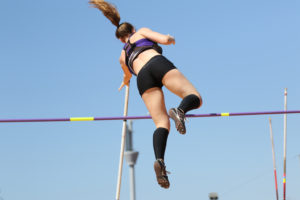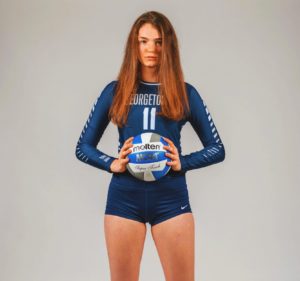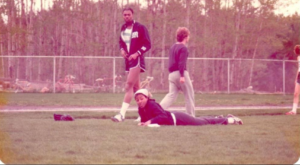
Katie Loftus
Wrote this blog. Katie is a former varsity Track & Field athlete for Williams College. She is a 2019 NCAA National Champion and is currently pursuing a law degree.
What is weightlifting training, beyond a set of movements your coach assigns multiple times a week? You squat, you deadlift, you bench, and then you’re done.
However, upon deeper reflection, these movements are the foundation for a feminist sense of self: such training actively reconstructs both internal assumptions and societal beliefs about how women should look and act.
Due to the complexity of movement and the amount of weight involved, weightlifting demands complete focus. Are my hands positioned right? Am I activating the right muscle? How hard does this weight feel to lift? This focus upends common exercise narratives revolving around external appearances by turning your attention inward to how your body feels and what it can do.
In other words, weightlifting can inspire a change in perspective: rather than seeing yourself as others perceive you, your identity may begin to hinge on your own internal sense of self and on your capabilities.
Finally, weightlifting increases your perceived and actual agency. Each time you cringe as you eye an impossibly heavy bar – only to push it off the ground with only the help of your body – you grow. Each time, you exercise your own physical agency through movement and prove to yourself what your body is capable of.
In a cyclical manner, every successful attempt only builds and reinforces your confidence, prompting you to reach for more both inside and outside the gym.
Seen from the this lens, each lift takes on new meaning. Rather than mere tasks to be completed, every movement becomes an intensely brave and feminist act: merely by snatching a loaded bar or heaving dumbbells off of your chest, you affirm a different womanly ideal.
Though originally constructed through weightlifting, this empowered sense of self will follow you long after your college athletics days are over. Whether in a boardroom, lab, or wherever else you take your talents afterwards, this training will shine through as you continue to prove what you – and all women – are capable of.
So, when you hit the gym this week, remind yourself why you are there and get to work.
(Katie Loftus Pole Vaulting for Williams College)




